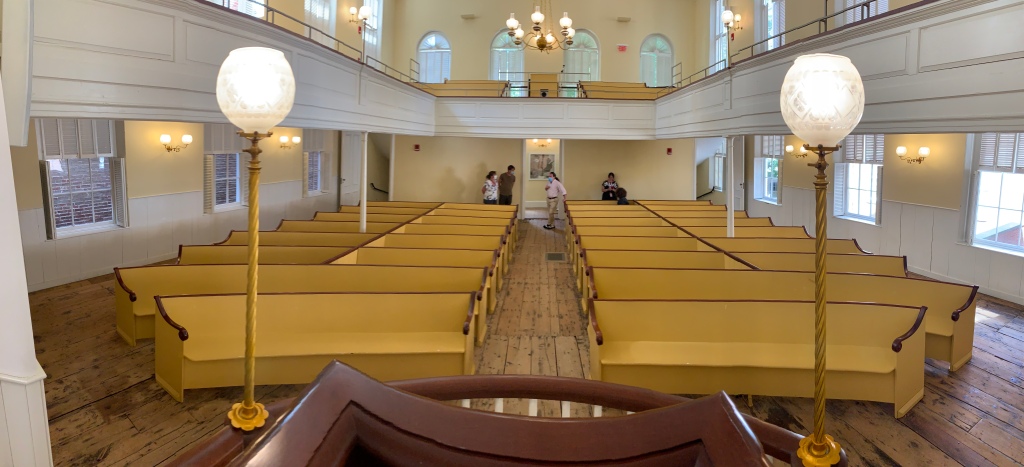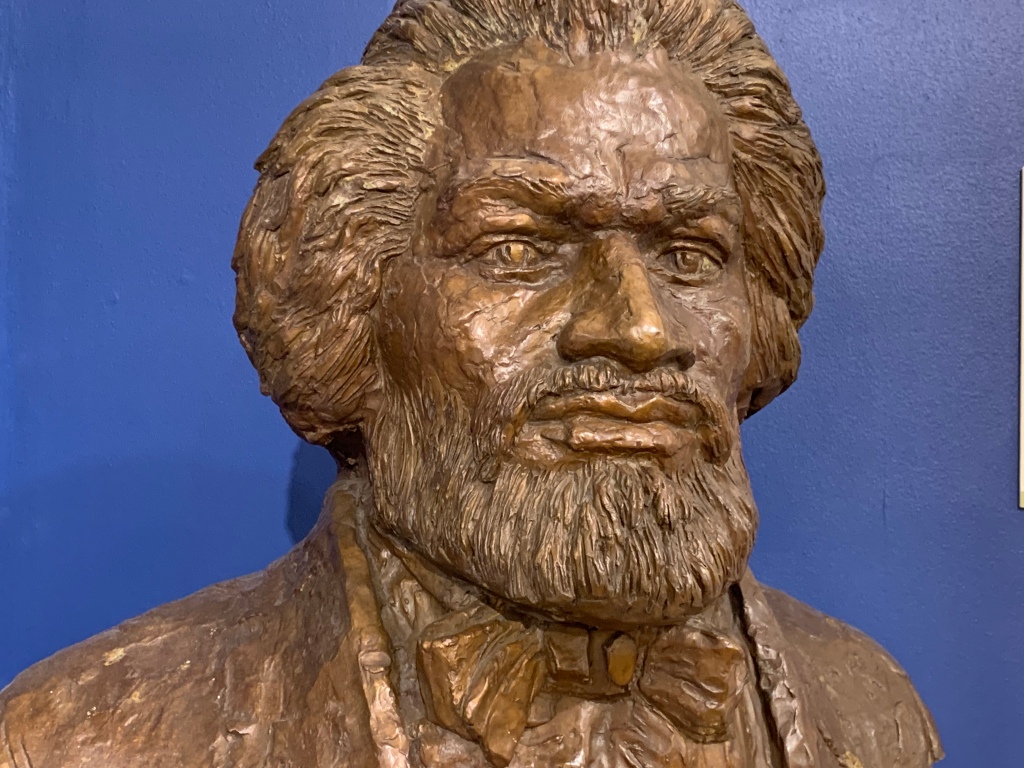
From a pulpit here in the African Meeting House (the oldest African-American church building), Frederick Douglass opened “a meeting to discuss the best method of abolishing slavery” in 1860. Maria Stewart, a free black woman, risked scandal and gave one of the first public speeches by any woman in America here to a racially-mixed crowd of men and women in 1833: “for it is not the color of the skin that makes the man or the woman, but the principle formed in the soul”. The north side of Beacon Hill was the center of a vibrant African-American community, the site of the first African-American school, the first African-American Masonic Temple, and a hotbed of abolitionist intellectuals. Harriet Tubman raised funds for the Underground Railroad here and networked with both abolitionists and early suffragettes in Boston.
While Faneuil Hall is famous for Patriot meetings before the Revolutionary War, it deserves equal renown for Abolitionist meetings before the Civil War, especially those dedicated to foiling the Fugitive Slave Act. Similarly, Boston was where the Massachusetts 54th and 55th African-American regiments formed before the battle at Fort Wagner (see the movie Glory). The Black Heritage Trail is fascinating, and includes the story of Sarah Roberts, a young black girl who wanted to go to the white school near her home. Her father’s lawsuit lost but led directly to the outlawing of segregated schools in Boston in 1855, a hundred years before Brown v Board. Racism continues, but the morality of equality is indisputable.

Pingback: Reconstruction Era National Historical Park | Zero Carbon Travel
Pingback: Blackwell School National Historic Site | Zero Carbon Travel
Pingback: Road to Abolition | Zero Carbon Travel
Pingback: All Civil War Battles, Zero Carbon Travel | Zero Carbon Travel
Pingback: All Civil War Battles, Zero Carbon Travel | Zero Carbon Travel
Pingback: The Road to Equal Education | Zero Carbon Travel